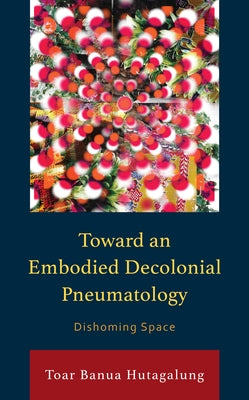Before you leave...
Take 20% off your first order
20% off
Enter the code below at checkout to get 20% off your first order
Discover summer reading lists for all ages & interests!
Find Your Next Read

Everyone wants to be and to feel at home. Yet, being homely requires a space or place where one can admit feeling familiar with and the surroundings can accept the person. What does it mean then to be in a liminal space where one is considered not this or not that? In Toward an Embodied Decolonial Pneumatology: Dishoming Space, Toar Banua Hutagalung tries to analyze this existential question through a postcolonial/decolonial approach. One thing that is responsible for such liminal spaces is colonialism itself. Colonialism, through its multiple elements, such as biopolitics, racism, and sexuality, became a formation that looks like a home but is a site of oppression. Nevertheless, the author argues that liminality is not just a site of rejection. By addressing a case from the formation of Indonesian nationality as well as taking a closer hermeneutical look at Indonesian literature, the author contends that liminality conveys decolonial acts. Integrating an interdisciplinary approach from postcolonial/decolonial studies, theological anthropology, and pneumatology, the author asserts that the Holy Spirit always dwells and moves continuously in liminal spaces. It pulsates within the capillaries of every person to fight against colonial legacies. With such a decolonial pulse from the presence of the Spirit, one can re-member and recreate what home means.
Toar Hutagalung is Director of Theology and Church History at the Uniting College for Leadership and Theology (UCLT).
Thanks for subscribing!
This email has been registered!
Take 20% off your first order
Enter the code below at checkout to get 20% off your first order